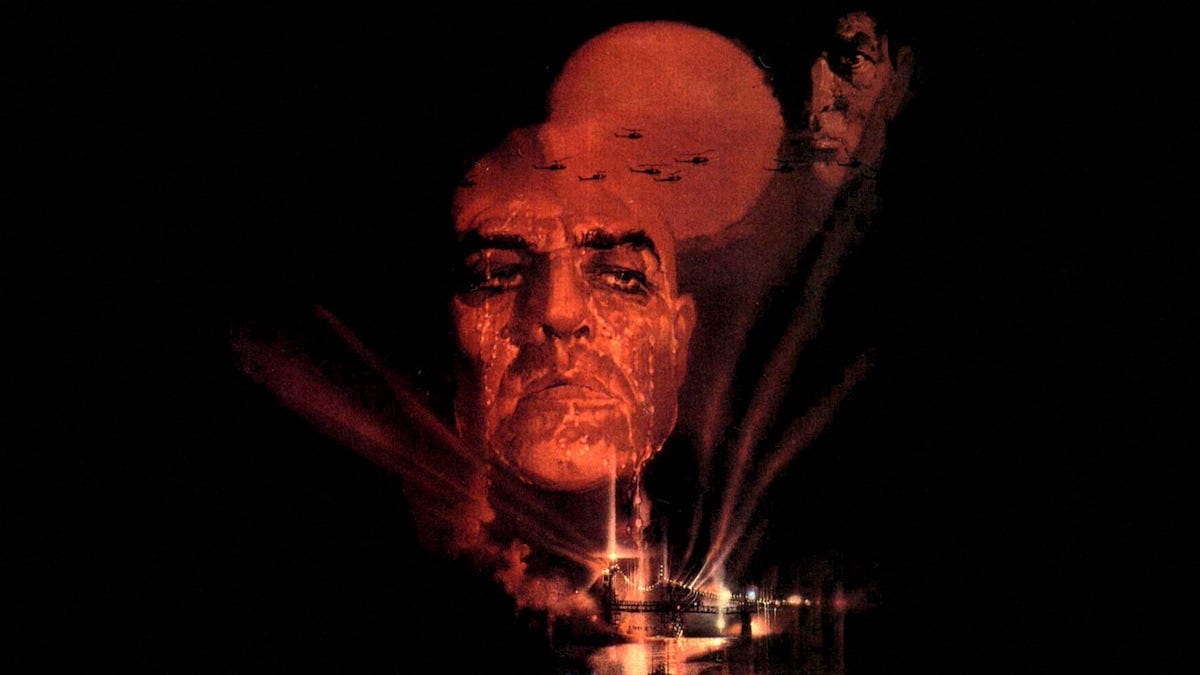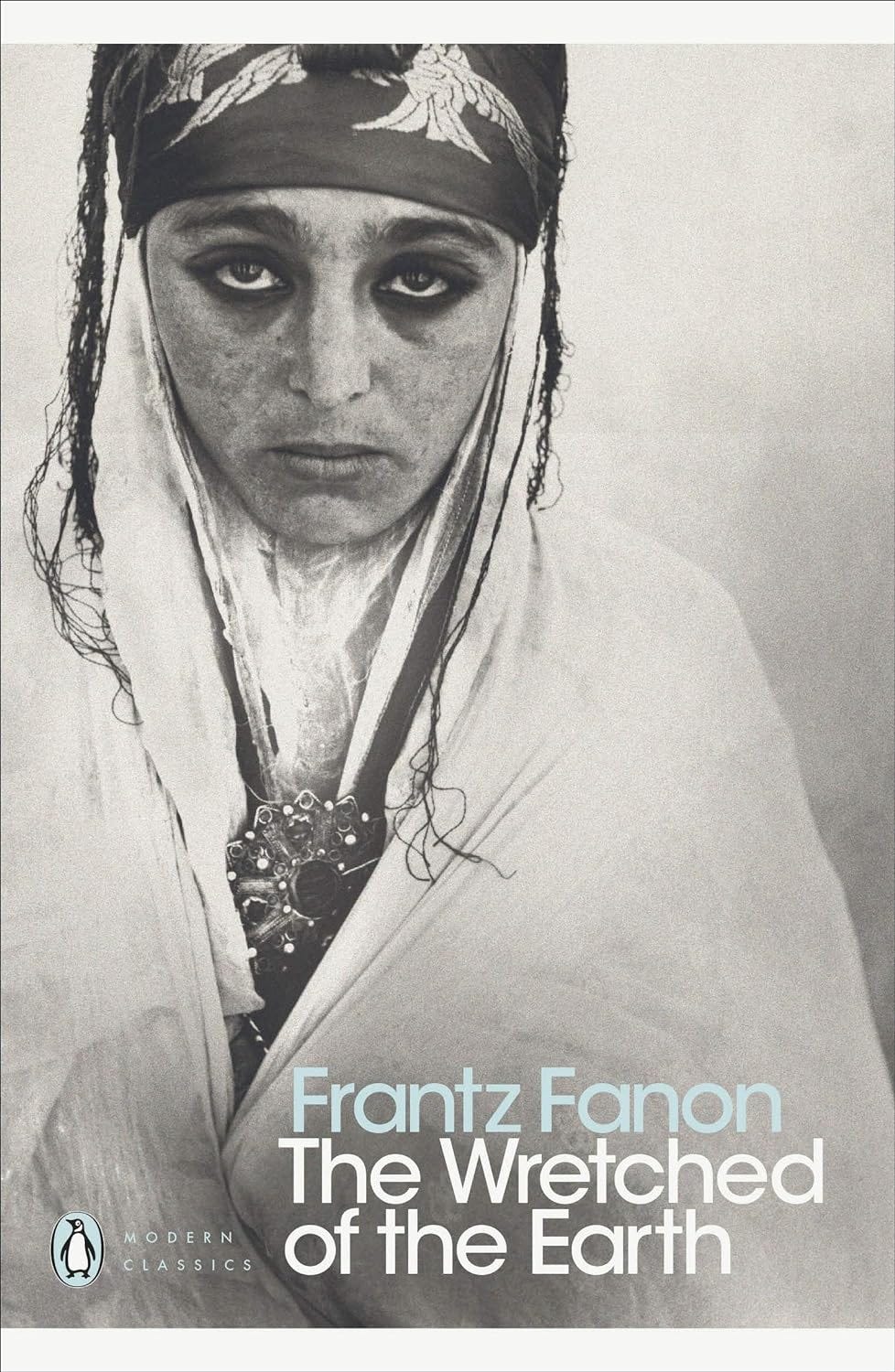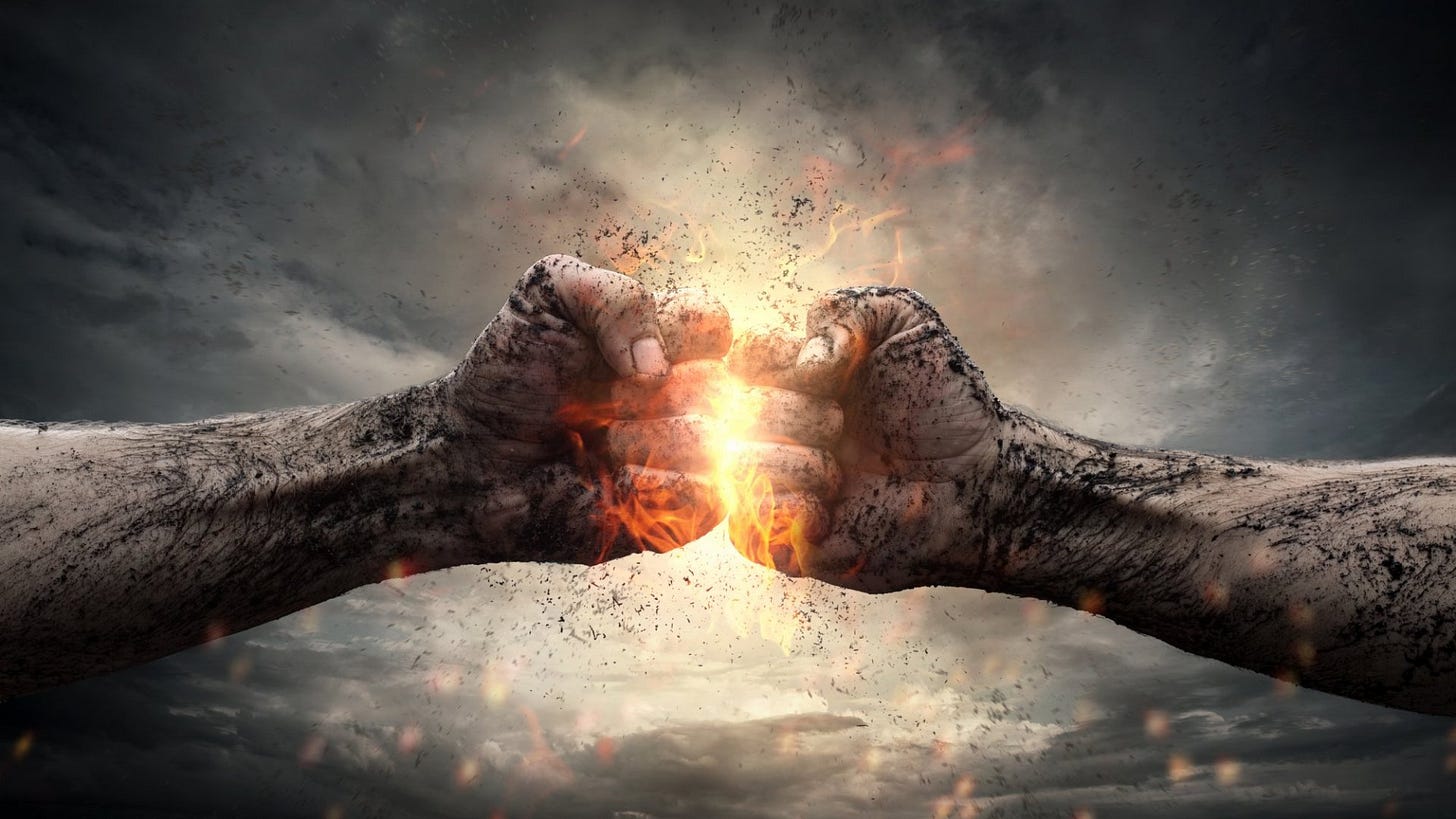Been thinking quite a bit lately about the intersection of identity politics and our current collective crises.
The fractures and schisms surrounding responses to the Hamas attacks have surfaced all sorts of ideological stress cracks on the themes of Justice, Equality and Power we haven’t seen this clearly in some time.
Arthur Brooks recently wrote a piece in the Atlantic “The Sociopaths Among Us: And How To Avoid Them.” Bari Weiss just published an essay plainly titled End DEI. Greg Lukianoff (Jonathan Haidt’s co-author on Coddling of the American Mind) dropped How American Colleges Gave Birth to Cancel Culture.
All three take various cuts at trying to parse when social justice becomes mob rule. Or when weasels in sheep’s clothing infiltrate the public square.
When equality of opportunity slips into tyranny of outcomes, you know we’re in a tough spot. Each time we violate shared notions of fairness, of a commitment to uphold some version of the Enlightenment Project, we risk massive pushback by those who sense that violation at a primal level. (see Haidt’s Moral Foundations Theory for a full breakdown of the top five core cultural values we tend to hold near and dear).
As the recent NYT poll put DJT absolutely routing Biden in key battleground states, we have to presume there’s something more fundamental at work than simply putting the twice imnpeached, four times indicted, losing-record Big Orange Fellow back in the Oval.
I’d suspect that some meaningful chunk of those swing voters swinging that way are doing so out of a persistent (and constantly aggravated) sense of Unfairness. That somehow we’ve lost the Plot on the American Experiment.
Said more simply, every time a strident Ibram Kendi/Robin DiAngelo acolyte slings a hottake on HuffPo, or marshals a cancel campaign on campus, a little red MAGA hat gets its wings.
So what to do?
The values of Social Justice are unimpeachable. Everyone, regardless of race, class, creed, gender or abilities deserves a fair shot at the Good Life.
But its methods as an ideological movement, have become, (to quote Apocalypse Now), deeply unsound.
(Brando, as Kurtz, gone wayyyy upriver)
Here’s an excerpt from Recapture the Rapture: Rethinking God, Sex and Death in a World That’s Lost Its Mind that speaks to the heart of our situation today. Hope you dig it!
Because in the past thirty years, identity politics of all persuasions—the idea that your race, gender, ethnicity, or ideology constitutes a certain irreducible essence of your being and of your experience, and that the only path to justice is to seek redress from those who have denied you your due—that premise comes undone at a structural level if one other thing is also true: that the next century is going to include more instability and possible hardship for all of us than any specific group’s outstanding IOUs.
So the first fact we need to face is that we’re not really stepping up to the occasion. You’d think that if we assessed the situation and concluded we’re in for a biblical flood, we’d get to work filling sandbags and setting up bucket brigades. But that’s not what’s happening. At all. The sheer enormity of everything—from climate, geopolitics, social unrest, and pandemics on the one hand, to the collapse in Meaning on the other—is short-circuiting both our cognition and our emotions.
It’s a toxic combination that’s metastasizing into rage. Right when we need to be at our best, we’re at our worst. Welcome to the culture wars, circa the Roaring Raging Twenties.
Culture, as conservative publisher Andrew Breitbart observed, is upstream of politics. But he neglected to mention that biology sits upstream of them both. So whatever social trends we want to defend today, we look for in the evolution of the species and past civilizations—as positive proof that the Laws of the Jungle and the Laws of Man are built from the same natural truths. We then cherry-pick patterns from the past to justify and explain our present. That always has political ramifications.
Both the far left and the alt-right correctly intuit that controlling the narrative around both the Western legacy and evolutionary biology are strategically important for their larger goals of social change. Tell the story of the way things have always been, and you own the high ground to also frame how (and why) things are the way they are now, and what we should all do next.
The Left wants to tear down the Western canon because they see it as the seedbed of historic and contemporary oppression. They want to censure biology in case contemporary findings on race or gender become weaponized.
(To be fair, the past four hundred years have a tarnished record of “scientific” arguments propping up everything from the institution of slavery to chemical castration for homosexuals to wage gaps between men and women. Social activists aren’t wrong to suspect that science hasn’t always been a pure pursuit of knowledge free from ideology.)
The alt-right agrees. But rather than fearing those defenses of white male logic and ingenuity, they’re cheering them. Trolling the libs, melting the minds of the snowflakes. Shoring up their fever-dream Aryan patriarchy one semi-ironic Reddit post at a time.
#becuzaristotle and #becuzscience
In this race to the bottom, both sides might be missing the most critical insight of all: that a careful study of biology highlights how fragile, rare, and precious the humanist experiment really is.
Evolutionary biologist Bret Weinstein, himself no stranger to the culture wars, notes that “there are really two ways in which cooperation evolves. The first one is very ancient and is based on genetic relatedness. . . . The other kind of cooperation is based on various kinds of reciprocity and it is much newer and much more fragile [starting 10,000 years ago]. When reciprocity-based cooperation breaks down we default to gene-based cooperation. . . . Backing people against the wall who have a genetic basis for cooperation is very dangerous because history tells us . . . they may turn into a genocidal menace.”
That’s what puts the power in White Power. As often as not, biology beats psychology. So when we advocate for more inclusiveness, or the righting of societal wrongs, we need to pay attention to the foundation our lives are built on.
***
A good place to start is the neurochemistry of connection—and what happens to it in times of crisis. While evolutionary biology looks at these dynamics playing out across hundreds of generations, neurochemistry maps the bedrock of our actual experience day to day.
When people undergo sustained chronic stress due to loss of social status, economic hardships, and general dislocation (as is increasingly happening the world), their serotonin levels get depleted. They’re more likely to behave vengefully. “According to our experiments,” Oxford researcher Molly Crockett wrote in an address to the World Economic Forum, “[when] serotonin, a neurotransmitter involved in self-regulation . . . levels are low, people become more focused on immediate rewards, and they become more impulsive and aggressive.”
While most people entrenched in culture wars these days will insist that they are taking stands for justice, ethics, or some other moral principle, Crockett found that subjects with depleted neurotransmitters took revenge on others even when it cost them personally. And their vindictiveness persisted even when the other person had no idea they were being punished. It feels really good to get our licks in, even when it undermines our own interests.
When we meet in large crowds like political rallies, protests, or sporting events, something else happens—both serotonin and dopamine surge. We feel better. That’s a huge part of the power of crowds. But that dopamine spike kills our “hyperaltruism”—or kindness to strangers. If you’ve ever had to endure someone coked up at a party, that’s this effect in extremis. Doped up on dopamine, we feel better, but we behave worse.
There’s a final layer of neurochemistry that drives group bonding—oxytocin. While oxytocin has been touted as the “cuddle drug,” the “love hormone,” and even the “moral molecule” because of its ability to prompt generosity and bond mother to child and lover to lover, it, like most explanations of the biology beneath our psychology, isn’t quite that simple.
“Now these studies [showing the positive effects of oxytocin] are scientifically valid, and they’ve been replicated,” Crockett explained at TED, “but they’re not the whole story. Other studies have shown that boosting oxytocin increases envy. It increases gloating. Oxytocin can bias people to favor their own group at the expense of other groups. And in some cases, oxytocin can even decrease cooperation. So based on these studies, I could say oxytocin is an immoral molecule.”
Katherine Wu, a Harvard immunologist, takes it a step further. “Oxytocin [also plays] a role in ethnocentrism, increasing our love for people in our already-established cultural groups and making those unlike us seem more foreign. Thus, like dopamine, oxytocin can be a bit of a double-edged sword.”33
In all of this there’s a vital implication we should be sure not to miss: Tribalism is the last level of social identification and belonging we are hard-coded to support. After genes and oxytocin bond us to the ones we love, and intensify our willingness to “Other” the others, everything else we aspire to is elective and not at all guaranteed.
Left to our own devices, we regress under stress. Put simply, tribalism is destiny. Humanism is optional.
The Dark Artists
That’s the peril of identity politics in general. The evolutionary instinct to bond with and protect those who look, smell, and talk like us is genetically encoded—it’s quite literally foundational to our survival as tribal primates. The kind of reciprocal cooperation based on mutual interest beyond our kin groups—that’s incredibly recent in historical terms, and fragile.
That fragility often gets exploited. It’s an old cliché that politics make for strange bedfellows, but in the case of identity politics, it gets stranger than that. Anyone seeking to smash the System, get what’s coming to them, and stick it to their enemies—no matter how righteous or seemingly justified—is, at a profoundly important and structural level, on the same team. Alt- right neo-Nazis actually have more in common with far left radicals than either would be willing to admit.
A recent study at the Queensland University of Technology proved that it’s not just a tribalist philosophy they share, it’s a troubling psychology as well.The researchers compared over five hundred diversely representative U.S. residents whose opinions all diverged from the mainstream. They divided them into three categories: radical left, progressive liberal, and White Identity. Then they assessed how prone each group was to favor authoritarian tendencies and what psychiatrists call the Dark Triad of personality types—narcissism, Machiavellianism, and psychopathy.
Interestingly, the centrists—those people who held pro-social values but also valued the choices of others—did not show any correlation with the Authoritarian Dark Triad. But both the Radical Left and alt-right did. That’s the basic contrast. Omni-Considerate win-win, versus self- interested win-lose.
Even though those two groups are “thought to reflect opposing ends . . . of the political spectrum,” the authors wrote in the journal Heliyon, they held remarkably similar psychological orientation: “Our study indicates that an emerging set of mainstream political attitudes—most notably [Radical Left and Alt-Right], are largely being adopted by individuals high in Dark Triad traits and entitlement. Individuals high in authoritarianism—regardless of whether [they] hold politically correct or rightwing views—tend to score highly on Dark Triad and entitlement . . .[they’re] statistically more likely than average to be higher in psychopathy, narcissism, Machiavellianism and entitlement.”
This study puts in sharp relief what’s at stake for all of us. It provides a twenty-first-century update to Yeats’s observation that “the best lack all conviction, while the worst are filled with passionate intensity.” Those with a cold Will to Power can readily infiltrate and hijack otherwise well-intentioned movements. Even the noblest philosophies can get captured by sociopaths. Robespierre is the poster boy for the Dark Triad, warping the ideals of the French Revolution into the bloody Reign of Terror.
By peddling Rapture ideologies cloaked in the language of identity and belonging, Dark Artists can capitalize on unrest to advance their own agendas. And they do it by hacking into our tribal physiology.
As cathartic as it may feel to be not just right but righteous, as justified as that rage and disillusionment may be, if we go that way, it will be our undoing. Blockchain futurists, seasteading libertarians, alt-right accelerationists, and social justice advocates often fantasize about demolishing our current system so they’ll have a blank slate upon which to build their Utopia. But that’s a naïve and dangerous delusion. Unleash the dogs of war and they’ll almost certainly come back to bite us.
To put what’s at stake into some perspective, after the Vandals sacked ancient Rome, it took until the Declaration of Independence for us to claw back to the same standard of living.
It’s much easier to break a few eggs than to put Humpty together again.
***
To get some helpful perspective on the current culture wars, we need to go back a few decades. In 1987, theologian James Carse wrote a short book called Finite and Infinite Games: A Vision of Life as Play and Possibility. In it, he described most of human history as consisting of finite games, i.e., discrete contests with clear winners and losers. These would include war and conquest, but also transactional business, sexual negotiations, and national politics. Anything with a one up/one down outcome.
According to Carse, there was another game, the Infinite Game—which, instead of having winners and losers, creates conditions where the purpose isn’t to end the game victorious. The purpose is to tune the game so everyone can keep playing it indefinitely.
We all experienced some version of this Infinite Game as children—where a bigger brother or neighbor who was dominating a game of kickball or hide-and-seek would agree to rejigger the rules when facing mutiny by dispirited younger kids. He’d give some head starts, spot points, or award first pick of teammates so it was closer to a fair fight. The big kids still loved winning but were willing to concede just enough to the losers to entice them to keep playing rather than quit the game altogether. That’s the Infinite Game in miniature.
Although Carse’s book didn’t come out until the last decades of the twentieth century, a deeper version of the Infinite Game he was describing had been in play for at least three hundred years. It started with the French Enlightenment and a radical commitment to the inalienable rights of Man: liberté, égalité, and fraternité (liberty, equality, and brotherhood) for everyone, regardless of race, color, or creed.
It gained traction in the American experiment and its lurching movement toward an open inclusive society. This messy, contradictory legacy––the one that includes the heady idealism of the Enlightenment with the bloody and tragic realities of power, oppression, and reconciliation– is the story of our fumbling efforts to move beyond the tribal imprinting of evolution and biology.
Make no mistake: Those with a home court advantage have often pulled every trick in the book to keep their upper hand. Change comes hard fought, or not at all. Abolitionists, suffragettes, unionizers, Black Panthers, Stonewall marchers, Cesar Chávez’s migrant workers, antiwar pacifists, farm protesters, Sagebrush Rebels, Pro-Life advocates, Pro-Choice defenders, Occupy Wall Street protesters, Tea Party activists, and Black Lives Matter demonstrators. All of them have had to take their grievances to the public square to be heard.
Crucially, the Infinite Game also includes Frantz Fanon’s withering critiques of European colonialism. It includes Noam Chomsky’s half-century of dismantling American hegemony as a tenured professor at MIT. It includes Cornel West railing against the racism embedded in American culture while teaching at Harvard, Princeton, and Yale. It includes Ta-Nehisi Coates winning the National Book Award and a MacArthur Fellowship while testifying to Congress about the need for reparations for slavery.
The Infinite Game includes all these perspectives—traditional, progressive, and radical— provided they commit to keep expanding the game to include everyone—whether their side wins or loses. If we turn our backs on that notion, we don’t just tear down the Dead White Males who happened to be in the right time and place in history to first put it into words and deeds, we tear up the best road map we have for a future that works for everyone.
“Because let’s be real,” Pulitzer Prize–winning author and MIT professor Junot Díaz wrote in The New Yorker.36 “We always knew this shit wasn’t going to be easy. Colonial power, patriarchal power, capitalist power must always and everywhere be battled, because they never, ever quit. We have to keep fighting, because otherwise there will be no future—all will be consumed. . . . This is the joyous destiny of our people—to bury the arc of the moral universe so deep in justice that it will never be undone.”
***
Which more or less, brings us back to our current moment. Cynicism is so deep on all sides that it’s become incredibly tempting to conclude that the whole system needs to come down. To break this stalemate we might have to give up our search for common ground, to meet each other on higher ground.
“The dream of the 18th century was that a single, coherent set of values, rooted in rationality, could make a heaven on Earth,” UC Berkeley philosopher Alison Gopnik writes.37 “But more- recent philosophers . . . sobered by the 20th century’s failed utopias, have argued for a more modest liberal pluralism that makes room for multiple, genuinely conflicting goods. Family and work, solidarity and autonomy, tradition and innovation are really valuable, and really in tension, in both the lives of individuals and the life of a nation. One challenge for enlightenment now is to build social institutions that can bridge and balance these values.”
While that kind of split-the-difference compromise is often held in contempt by revolutionaries, there is a subtle genius to M.A.D.—mutually assured dissatisfaction. At its worst, this kind of strategic stalemate leads to stagnation and frustration. At its best, this sort of agonistic liberalism leads to the kinds of hard-won compromises that delight virtually no one, frustrate nearly everyone, and perversely expand the chance to keep playing the Infinite Game with more and more players, better than any other options we’ve found.
What’s better—supply side economics à la John Keynes, or libertarian free markets à la Milton Friedman? Safety nets or bootstraps to build a just society? Big sticks or carrots to preserve international order? Federal or states’ rights to guide the governed? Investing in education or employment to empower a citizenry ? Separation or integration of church and state? Multicultural melting pot or national identity? Revolution or evolution?
The only honest answer is “it depends.” And we’re not entirely sure. If all of life on Earth was compressed into one twenty-four-hour day, anatomically modern man shows up at four seconds before midnight. Cave paintings at one second before the end. We’ve only been playing at civilization for the last fraction of a second. To put how little we know in perspective, we’re still not settled on the simple facts of whether eggs, butter, and coffee are the best things ever, or are going to murder us in our sleep.
So this remains our present and most pressing challenge: Can we take Gopnik’s advice, and dust off the battered and bruised Enlightenment experiment—the one that stops the regression into tribalism threatening both sides of the political spectrum these days—the one that aspires to get us past win-lose gamesmanship and into the win-win Infinite Game?
Because every time we’ve repaid oppression with oppression, it’s ended in bloodshed and more suffering. The few times our Better Angels have met oppression with compassion, we’ve remade the world.
If we fracture now, when we should be urgently uniting, if we dig in our heels and say, “I refuse to cooperate or acknowledge the shared humanity of those not like me until I get mine,” then we increase the likelihood that we all get hurt. Badly.
If we conclude that the regression into violent win-lose tribalism as the planet strains to support eight billion humans is a catastrophically bad thing, then we must also conclude, as Muhammad advised, “The enemy of my enemy is my friend.” At least for now. Maybe forever.









Generally, I agree with what you've written here. Without reducing 50 years of adult developmental research too much (and stating the obvious), what we're looking at here can be understood through this four-level shorthand: It's about me (me-centric) -- think Donald Trump. It's about us (group(s)-centric) -- think Republicans and Democrats or any other groups on the planet that live through an us v. them perspective. It's about all of us (human-centric) -- think Ruth Bader Ginsberg. It's about all that is (planet/universe-centric) -- think Thich Nhat Hanh. Each of these can manifest in healthy or unhealthy ways.
The majority of the folks in the U.S. and on the planet who wield power remain mired in a group-centric perspective ... and they think they're right. If you want to understand Mike Johnson's worldview, "read the Bible." Yucking fikes, Mike! Which books, and what, exactly, is the worldview of the Bible. If you want true equality (and safety) for the best and the brightest, uninvite, cancel, and censor voices you disagree with on campus (Haidt and Lukianoff).
The infinite game doesn't begin to come onboard even as a possibility until an "all-of-us"/human centric perspective is available -- and preferably lived, not merely espoused. It is arguably inevitable from a lived all-that-is perspective.
As long as a majority of us continue to try to win at our finite games of choice, we all lose. Daniel Schmactenberger put it this way: "Stop trying to win at the dying game. And not just the dying game but the game that's killing everything."
Thanks, Jamie.
I'm curious about how you see the work of Thomas Hubl on collective trauma figuring into this. I can't speak to the science but it seems to me that when you couple tribalism with people who've had their nervous systems highjacked by being sucked into long standing (or more recent) collective trauma fields, you end up with a very dangerous situation where the worst kinds of behavior happen. Or maybe it goes the other way... maybe it's being hooked into collective trauma fields causes tribalism/othering. Maybe nervous system regulation is the prerequisite to any kind of peace.